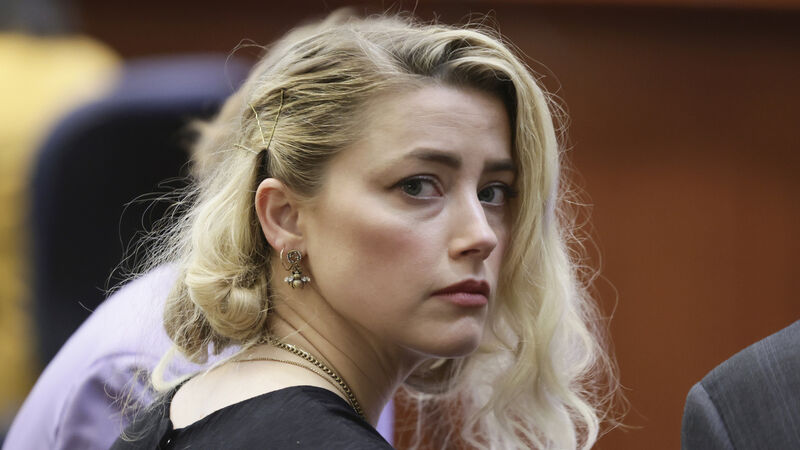Joyce Fegan: MeToo isn't over — it's just time to regroup

Amber Heard waits before the verdict was read at the Fairfax County Circuit Courthouse.
Try from €1.50 / week
SUBSCRIBE
Amber Heard waits before the verdict was read at the Fairfax County Circuit Courthouse. Picture: Evelyn Hockstein/Pool via AP
IN crimes of sexual nature it is so often the accuser, not the accused, who goes on trial.
And that’s not just if the matter makes it to court, because so few do. It’s in cases where the teenage girl who has consumed alcohol is assaulted at a party. The assault is videoed and that footage is then shared in school WhatsApp groups or on TikTok.
Already a subscriber? Sign in
You have reached your article limit.
Annual €130 €80
Best value
Monthly €12€6 / month
Introductory offers for new customers. Annual billed once for first year. Renews at €130. Monthly initial discount (first 3 months) billed monthly, then €12 a month. Ts&Cs apply.
CONNECT WITH US TODAY
Be the first to know the latest news and updates
Newsletter
Sign up to the best reads of the week from irishexaminer.com selected just for you.

Select your favourite newsletters and get the best of Irish Examiner delivered to your inbox
Monday, February 9, 2026 - 8:00 AM
Monday, February 9, 2026 - 6:00 AM
Monday, February 9, 2026 - 6:00 AM
© Examiner Echo Group Limited